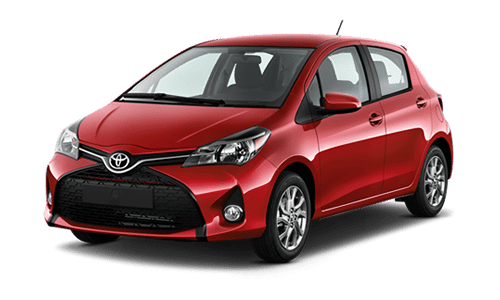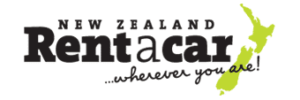Driving Safely In New Zealand
Visitors to our lovely country report they find driving in New Zealand a remarkably stress-free experience. Traffic volumes are comparably low, the roads are well maintained and driver skills are of a high standard.
However safety should always come first, it is important to make sure you are fully prepared before driving in New Zealand. This includes familiarising yourself with your vehicle and recognising that driving conditions, road rules and safe driving practices can vary greatly from country to country. Read on for our safe driving basics, information on speed and alcohol limits in NZ and general road safety advice.
The Basics of Driving In New Zealand
Before driving in New Zealand it is important to familiarise yourself with the New Zealand Road Code, it provides useful information on NZ traffic law and the basics of driving in NZ. Meanwhile here is our round up of the top 5 things you need to know when driving on New Zealand roads.
- Drive on the LEFT hand side of the road
- Seat belts are mandatory for all vehicle passengers
- Open road and motorway speed limits are 100kph (about 60mph), unless otherwise stated.
- When turning at traffic lights, give way to pedestrians using the crossing.
- Drivers must always carry a valid New Zealand, international or internationally approved driver’s licence.
- Speed limits are given in kilometres per hour (kph), not miles per hour (mph).
- Using a hand-held mobile device such as a smartphone is illegal while driving.
- You must come to a complete stop at all Stop Signs.
- Driving while under the influence of alcohol or drugs is taken very seriously in New Zealand; do not drink alcohol or take drugs and drive.
- Always obey NZ Road Signage and take on board speed recommendation signs.
To drive a car on the road in New Zealand you require a NZ Drivers Licence, or hold a current, valid driver licence from another country or an international driving permit and:
- You’ve not received a disqualification or suspension in New Zealand, and
- You last entered New Zealand less than 12 months ago, and
- You’ve not been granted a New Zealand driver licence and
- Your overseas licence is in English; if not, you have an accurate translation
If your driver’s licence or international driving permit doesn’t meet these requirements, you must apply for a New Zealand driver licence.
Open country speed limits are generally 100kph (about 60mph). When the road passes through a town, it reduces to 70kph or 50kph. A plain white circular road sign with a black diagonal line across it indicates that the speed restriction is lifted, and that the 100kph limit applies. Hazardous bends are often marked with a lower speed limit.
Many New Zealand highways and roads don’t have traffic barriers, so keep to the left unless overtaking and take care on hills and mountain roads where there may be sheer drops close to the side of the road. New Zealand roads are generally well signposted, with all highways given a one or two digit number. This number is shown on most maps, and on freestanding roadside signs. On the outskirts of most towns, or shortly after major intersections, large green signs display the distances to the next towns.
The NZ police enforce all driving laws throughout the country, with the exception of parking fines. They make extensive use of marked and unmarked patrol cars along with fixed and mobile speed cameras that operate on open roads and in suburban areas.
Any car used on a New Zealand road needs a current and valid Warrant of Fitness (WoF) and it also needs to be registered. Getting a Warrant of Fitness requires an annual mechanical inspection, and the Registration requires the payment of a nationwide set fee.
Rental cars in New Zealand are subject to a more stringent safety inspection, called a Certificate of Fitness. Documentation for both of these requirements is affixed to the windscreen.
NZ Speed & Alcohol Limits
While you are touring New Zealand it’s crucial to familiarise yourself with our driving rules, and two that are particularly important are the speed limit and the legal alcohol limit. Both the speed limit and impaired driving from alcohol or drugs are monitored heavily by the Police in New Zealand.
There are a range of different speed restrictions in New Zealand. As we are a small country with varied terrain and not a lot of long straight highways, speed restrictions apply to different catchment areas depending on safety, the amount of traffic activity and whether accidents regularly occur in the area.
Please note: these guidelines are for cars and vans – heavy goods vehicles have different speed guidelines.
- Country/open roads/motorways: 100km/h
- Approach roads to residential areas: 70 km/h
- Residential, urban and commercial areas: 50km/h
- Around schools and high traffic areas: 40km/h
- Road works: 30km/h
Most speed restrictions are sign posted but if you are driving through commercial and residential areas and you do not see a sign – the speed limit is generally 50kms per hour. Some larger roads and dual carriageways may have a 60km/h limit and some semi-rural roads may have 70 or 80km/h speed limits. Some shopping/CBD areas also have a restricted speed due to lack of space, and danger to pedestrians e.g. Ponsonby Road in Auckland where speed is restricted to 40kms per hour.
It is important to understand that these speed limits are the maximum speed allowable on this particular road. This speed not a target or a continuous requirement – always drive to the conditions and reduce speed when cornering or experiencing heavy traffic.
NZ roads are very windy at times with tight corners and uneven road surfaces, look out for warning signs on tight curves recommending a safe speed at which to approach that section of the road. See more information on New Zealand speed limits here.
Speeding Fines
Excessive speed is one of the biggest killers on New Zealand roads, with around 80-100 deaths each year from speed related accidents, along with over 2000 injuries (data extracted from the Ministry of Transport Speed Crash Facts for 2017). Speeding fines are issued via a variety of speed cameras; some are permanently mounted at the side of the road, especially in larger cities and heavy traffic areas, and/or also via marked or unmarked police patrol vehicles.
In more rural areas and smaller townships you are more likely to come across police vehicles tucked away at the side of the road with officers using hand held devices. Police radars within patrol cars are also commonly used to catch offenders. If you do get caught by a speed camera the Police will send a fine to the registered owner of the vehicle. These fines can be as much as $630 NZD. If you are driving a rental car the hire company will identify who the driver is and pass on the fine amount with an additional processing fee.
Fines for speeding range from $30 for speeds less than 10km per hour over the limit, to a maximum of $630 for speeds up to 50km per hour over the limit. The following amounts are given as a guide only, for more information on speeding fines in NZ please see the NZ Police website.
- 10km/h or less $30
- 11-15km/h $80
- 16-20km/h $120
- 21-25km/h $170
- 26-30km/h $230
- 31-35km/h $300
- 36-40km/h $400
- 41-45km/h $510
- 46-50km/h $630
Demerit Points
For those with a NZ Drivers Licence certain driving offences will accumulate what is known as “demerit points”. This system can result in the suspension of your licence if you accumulate 100 or more demerit points across any two year period.
Demerit points can be awarded for speeding fines as well as other driving offenses such as using a mobile device while driving, driving without the correct licence, driving an unregistered vehicle, unsafe passing, failing to stop at a Stop Sign or not giving way to pedestrians at a designated crossing and many more. See here for a complete list of offences that incur demerit points.
Prosecution
If you have been speeding excessively or driving dangerously there is also the possibility of prosecution. Depending on the circumstances you could be charged with careless, dangerous or reckless driving in a NZ Court of Law.
Blood alcohol limits in New Zealand are set at 50mg/100ml, although having any alcohol in your blood after an accident may affect the insurance cover on your vehicle. The best policy is never drink at all if you are planning on driving.
For adults over 20 years the legal alcohol limit is 250 micrograms per litre of breath or 50 milligrams per 100 millilitres of blood. If you are under the age of 20 there is a zero tolerance for consuming alcohol and driving so even if you have just one drink you will be breaking the law and will receive penalties.
4 Factors Effecting Blood Alcohol Absorption
The amount of alcohol that can consumed varies with the individual and is dependent on:
- Body weight
- Food/water intake
- Gender
- Individual body types
Even small amounts of alcohol can affect your judgement, it is always strongly recommended not to drive at all if you have consumed any alcohol just to be safe. Organise for a sober driver or arrange a taxi or some other way of getting around if you are planning on drinking while travelling in New Zealand.
Tour operators are a great way to organise transport ahead of time and ensure your safely and the safety of others – so if you’re heading on a winery tour or going to a big event, check to see whether transport can be provided or whether there is a free shuttle etc.
You also cannot drive if you have taken any type of drug that may affect your driving ability. This includes illegal substances and prescribed drugs, so if you are taking medication prescribed by a doctor ask if they may have any effect on your driving and make alternative arrangements
Testing For Drugs Or Alcohol
The NZ Police can stop you at any time for breath alcohol testing. The police tend to be out in force on public holidays, long weekends and during holiday season in particular, and you may pass through a checkpoint at any time where you are required to stop and be tested.
There are a range of tests used in NZ to check for alcohol or drugs in your system, these include:
- Passive Breath Test. You will speak into a handheld device that detects whether you have been drinking.
- Breath Screening Test. If the passive test detects alcohol you will be asked to continuously blow into a small device to measure the amount of alcohol in your blood.
- Evidential Breath Test. If you have more alcohol than is allowable you will be taken to a Police Station or nearby testing vehicle to blow into a larger electronic machine which officially records your breath alcohol levels to be used in a court as evidence.
- Blood Test. Depending on the circumstances you may be asked to take a blood test which will be taken by a doctor or other approved medical person.
For more information about New Zealand drug and alcohol testing visit the NZ Transport Agency website
Safe Winter Driving In New Zealand
Before driving on New Zealand’s roads this winter, make sure you have the latest information on weather and road conditions in your area. Check the weather forecasts for the duration of your trip (if available) and make a note of any areas you are planning to travel to that are expecting extreme weather conditions, heavy snow or hail. We also have some handy advice for safe winter driving in New Zealand.
Whether you’re using a rental car or travelling in your own vehicle, snow chains are crucial when travelling on snow covered roads. See above for our video on fitting snow chains and here are some points to remember:
- Snow chains must be compatible with your car’s wheels – check they are the correct size
- Fit the chains to the driving wheels (e.g. on the back wheels for a rear-wheel drive car)
- Drive a short distance then check the chains to ensure they are securely fitted
- Drive slowly and carefully
If you’re using a rental car, ask about the use of snow chains before you head off.
Black ice is a thin sheet of transparent ice which makes it very difficult to spot. Black ice is very dangerous, causing drivers to lose control suddenly. Be particularly careful in shady areas, on bridges and overpasses, and near water.
How to keep safe on icy roads:
- Drive slowly and avoid sudden braking
- Avoid sudden changes in direction
- Be aware of other road users
- Leave a large gap between you and the car in front
- Keep an eye out for ‘wet’ patches on the road
Severe weather conditions in New Zealand can cause travel disruption and road closures, which can affect you if you’re planning on travelling by road. Some locations have only one route available so road closures can be very disruptive. Don’t get caught out – plan ahead using these great New Zealand websites which offer up-to-date weather and reports on road conditions:
Some other things to remember when travelling by road in winter:
- Warm coat, gloves and hat
- Blankets and extra water in case you get stuck overnight
- Torch and spare batteries
- Battery powered radio and mobile phone
- Shovel and a couple of pieces of old carpet (if you get stuck in snow)
- Keep your headlights on
See here for more in depth information on driving in snow and wintery conditions in New Zealand.
Tourist Driving Theory Quiz
Want to make sure you have all the basics down and understand the New Zealand Road Rules? Take an online Road Code Quiz thanks to the AA, and stay safe while driving in New Zealand.

Book online or call us now. Our operators are available 8am-5pm, 7 days a week. View our branch locations.

